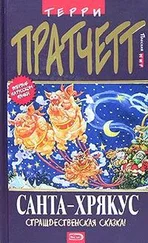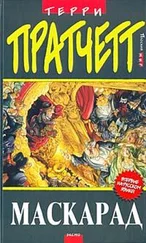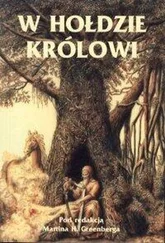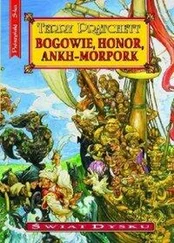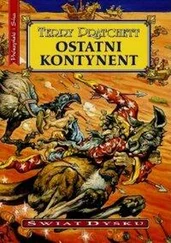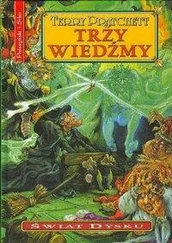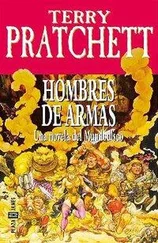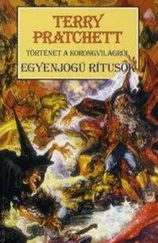“Yes, but did the ghost girl ever come back again?” said the girl in a determined voice.
“Not exactly, but her son and granddaughter did,” said the old man.
“Then it’s still sad,” said the girl.
“Well, I don’t know about that,” said the old man. “I understand she married a very nice gentleman from Holland. A prince, I believe. And of course you know she became queen.”
“Yes, but it still shouldn’t have happened like that,” the girl insisted.
“Well, she went back for the sake of her nation, and he stayed here for the sake of his. Wasn’t that right?”
The girl considered this and said: “I suppose they both thought more about their people than they thought about each other.”
“And you, young man?”
The boy looked down at his feet. “I think they both thought more about their people than they thought about themselves.”
“Good answers. And I think they were happy, in their own ways.”
“But they were still sweet on each other,” said the girl, not giving up.
“What a delightfully archaic term! Well, yes, when she died — which was not long after Mau died — the trousermen were not very happy, because they wanted to bury her in a stone box in one of their god houses, but she had the Gentlemen of Last Resort on her side. They brought her here in a steamship full of ice, and she was wrapped up in papervine and weighed down with stones and sent into the dark current, where we had gently sent Mau only two months before. And then, my great-grandfather wrote, everyone cried and cried… as I see the two of you are now, in fact, doing.”
“It was just dust,” said the boy.
The old man smiled and fished a handful of folded papervine out of his pocket and handed it to the girl, saying, “Feel free to blow your nose.”
“And then two dolphins were seen swimming in the lagoon,” said the girl firmly. She blew her nose and gave the papervine back.
“I don’t recall ever being told that,” said the old man, taking it by what seemed to be the least damp corner.
“It must have happened, though,” the girl insisted. “It’s the only right ending. They would have been swimming in the lagoon, but people were probably crying too much to notice.”
“Yes, that could have been it,” said the old man tactfully. “Now, I think, for the official bit.”
He led the way out of his little office and along a wide wooden veranda. It had one of the best views on the island. One end of it was tangled in the canopy of the low forest, so that leaves and flowers cascaded over it, and the other had a breathtaking view across the lagoon. There was a little shed at that end.
“And since the night the first telescope was set up here, we have had the Tell and the Show, for young people when they come of age,” the old man said. “Ha! By now, of course, you kids have hung out around every dome and telescope array on the mountain, right? They spring up like mushrooms, don’t they? But perhaps you think you have seen it all? People hardly look these days — have you noticed that? It’s all photography and the electric internet. Call me old-fashioned, but that’s not stargazing, it’s just computers!” He stopped by the little shed. “So I’m going to show you something that you have never seen before. It’s a little trick, really, and once you think about it, you will say ‘huh’ or some similar ejaculation, but I happen to think it is rather, as you would put it, ‘neat.’”
He undid the shed door, which ran back on little rails, to reveal a telescope very much smaller than the ones in the big white domes on the mountaintop.
“Is that it?” said the girl. “It’s very small.”
“Only in size, not in history,” said the old man reproachfully, glancing at his watch and moving the telescope with the care of someone who has done this a thousand times before. “Ah, got it first time,” he said, looking into the lens.
“It’s not dark for a long time yet,” the boy pointed out.
“The universe doesn’t care about that,” said the old man, stepping back. “Go on, one of you. Take a look.”
“But the sky is still blue!” said the girl.
“Oh, be clever, then, and don’t look,” said the old man cheerfully. “I dare you to look!”
She looked, and gasped. “It’s in daylight!”
She stepped away from the telescope. The boy looked through the eyepiece and backed away quickly, staring at the clear blue sky.
“Yes, it took me like that the first time, too,” said the old man gleefully. “The planet Jupiter, in the daylight. You saw the storm belts and three of his sons, which of course we now call moons. Callisto is behind the planet right now. And it was a shock, wasn’t it? A moment of uncertainty? The world turned upside down?”
“It was a bit creepy, as well,” said the boy.
“Oh, indeed. And now you know the universe isn’t just a light show. They keep it running during the day, too!” The man clenched his wrinkled hands and said: “Live for those moments! They keep you alive! There is no better medicine than finding out that you are wrong! What did your mother put in your hand when you were born, young man?”
“Er… a wooden telescope, sir. So that I will want to see farther,” said the boy. He was a little shaken; tears were running down the old man’s cheeks, even though he was smiling.
“Good, good. And you, young lady?”
“A blue hermit crab, sir. So that I won’t accept any shell.”
“That’s a big totem to live up to. You must spend your life asking questions.”
“I know, sir. Why are you crying, sir?”
The old man opened his mouth and then hesitated for a moment. “Ah, good one! I must answer, mustn’t I?” He straightened himself up. “Because you liked my blue Jupiter. Because we keep going. Because we’ve come so far and have such a long way still to go. Because there are stars and blue hermit crabs. Because you are here, and strong and clever. The joy of the moment. Those sorts of things. Do excuse me if I sit down.”
He walked over to an ancient cane chair and jerked up quickly as he went to sit in it.
“Now then, Helene,” he admonished, “you know you shouldn’t be on there. I could get into trouble for sitting on a protected species, my girl!” He put a large tree-climbing octopus on the decking and patted his pockets. “I think I may have a dried shrimp here for a good girl… ah, yes.” He held up the shrimp and said: “Count to… five.”
A wrinkled gray arm picked up a smooth pebble by the chair and thumped on the planks five times. A pair of very large, soulful eyes looked up at him.
“Good girl! She can count up to fifteen, you know,” said the old man proudly, sitting down quickly in the vacated chair. “Helene’s been a bit naughty lately. She had that nice Professor Dawkins by the leg last month — we had to lure her away with a bucket of crabs. He was very gracious about it, I’m pleased to say. Charles Darwin spent hours in the low forest when he came here, as you might expect, and was the first to notice that the octopi used primitive tools. They fascinated him.”
He leaned back in the chair, while Helene curled up hopefully under it (where there is one dried shrimp, there may be more — possibly as many as fifteen).
“Do you believe in Imo, sir?” asked the boy.
“Ah, the usual question. We come to it at last. You know Mau said that Imo made us clever enough to work out that He does not exist?”
“Yes, sir, everyone says that, but that doesn’t help a lot.”
The old man stared out at the sea. There was never much twilight at this latitude, and the early stars were already showing.
He cleared his throat. “You know… Pilu — I mean the first one — was my great-great-great-great-grandfather, son to son. He was the first to learn to read and write, but I expect you know that. It was clever of the Society to send a teacher on that first boat. Mau had no children, although that might depend on how you define a parent and a child. One of the things he said was: ‘I cursed Imo because he gave the birds and animals a way to sense great waves, and didn’t give it to smart beings like us. But I realize that He did. He made us smart. It was up to us to be good at it!’ I think about that every time the seismograph beeps. But I’m not really answering you, am I?”
Читать дальше

